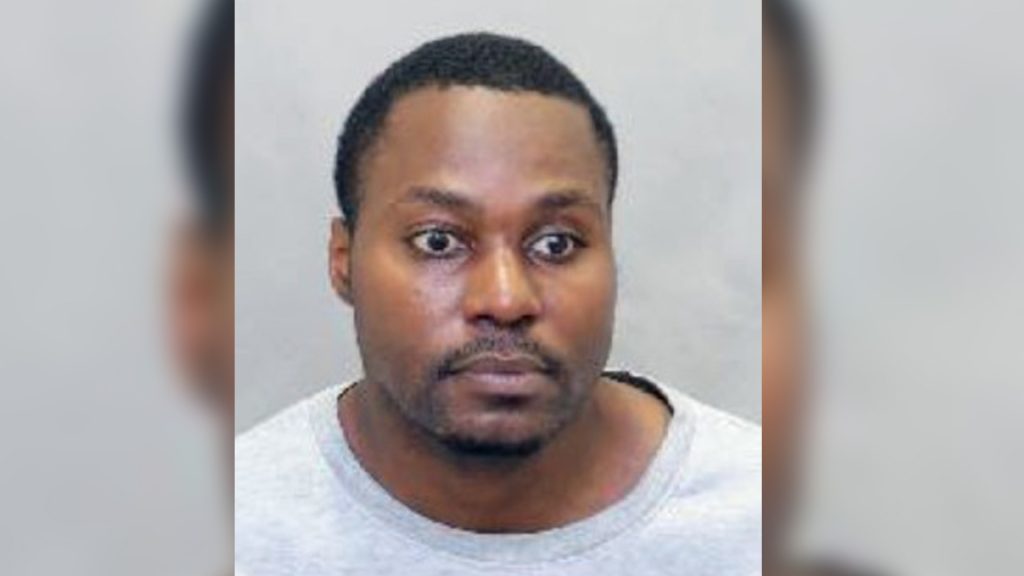Jacob Hoggard to remain on bail after sexual assault conviction, judge imposes curfew
Posted June 5, 2022 6:33 pm.
Last Updated June 6, 2022 12:43 pm.
(Editor’s Note: Some of the details in this report are graphic and may be disturbing to some readers)
An Ontario judge has imposed stricter bail conditions on Jacob Hoggard, a day after the Hedley frontman was found guilty of raping an Ottawa woman but not guilty of groping and raping a teenage fan.
Ontario Superior Court Justice Gillian Roberts rejected prosecutors’ request to revoke Hoggard’s bail until his sentencing, which is expected later this summer, saying she believes the tighter conditions can address the risk the singer might flee as well as the “current strong public interest in accountability.”
Under the new terms, Hoggard must live at his Vancouver home or another preapproved address and be home between the hours of 10 p.m. and 6 a.m., except in the case of emergencies or approved commitments.
He must also remain in British Columbia, except for court appearances in Toronto, and submit to regular check-ins and random compliance checks.
Hoggard’s wife, who has also pledged $200,000 for his bail, is one of two sureties selected to monitor his compliance.
Hoggard, 37, was found guilty of sexual assault causing bodily harm against an Ottawa woman but acquitted of the same charge against a teenage fan.
He was also been found not guilty of sexual interference, a charge that relates to the sexual touching of someone under 16, in an incident involving the same fan when she was 15.
The singer, who wore a dark suit, hugged his wife in the courtroom after the verdict was read. She wiped away tears after he returned to his seat.
Roberts rejected the Crown’s request to revoke Hoggard’s bail until his sentencing but said stricter conditions were warranted, noting the musician would likely face a prison sentence.
RELATED: Jurors deliberating Jacob Hoggard trial return with more questions Sunday
During the trial, prosecutors alleged Hoggard groped the teen after a Hedley show in Toronto in April 2016, then violently raped her in a Toronto-area hotel room later that year after she turned 16. They alleged he then violently raped the Ottawa woman in a Toronto hotel in November 2016.
Both complainants testified they were left bleeding and bruised. They each said Hoggard slapped them, spit in their mouths and called them derogatory names such as “slut” and “whore” during the encounters, and that he restricted their breathing at one point.
The younger complainant said Hoggard pushed her face into the pillows until she thought she would pass out, while the Ottawa woman said he choked her so hard she feared she would die.
The second complainant also said that on one occasion, Hoggard dragged her by the legs into the bathroom and asked her to urinate on him, then said he would urinate on her, both of which she refused.
The Crown urged jurors to consider the similarities between the events recalled by two women who have never met or spoken to each other, arguing they reflect a pattern of conduct.
Hoggard, meanwhile, testified during the trial that he had consensual, “passionate” sex with the complainants and that he didn’t touch the teen sexually until after she turned 16.
“I knew when she turned 16,” Hoggard testified, adding he made sure “to be responsible and not break the law.”
Jurors began deliberating last Tuesday
He denied choking or restricting the complainants’ breathing but said some of the other things they described, including slapping, spitting, name-calling and urination, were among his sexual preferences and therefore could have happened. He described the type of slapping he enjoys as more of a gentle tapping.
He testified that his memory of the encounters wasn’t clear, but he knew the complainants consented based on their verbal and non-verbal cues, and because it was his practice to pay attention to his sexual partners.
Defence lawyers alleged the women lied about being raped after Hoggard rejected them because they were embarrassed and upset that he had used them for sex.
The jury, which appeared to be composed of 10 men and two women, began deliberating last Tuesday and twice indicated it was deadlocked on “some” counts.
Each time, jurors were asked to keep trying. They went on to replay the bulk of the testimony given by the two complainants and Hoggard and asked several questions on legal issues, many related to consent.
Since Hoggard acknowledged having sex with both complainants, the case turned on the issue of consent, with jurors left to determine whether the encounters were violent rapes, as the complainants alleged, or consensual one-night stands, as the singer maintained.
Jurors were told that if they found the complainants didn’t consent, they should have “little difficulty” concluding Hoggard knew or willfully ignored the fact they were not consenting.
Over the course of the roughly month-long trial, jurors heard dramatically different portrayals of Hoggard, a musician whose band, Hedley, rose to fame after he came in third on the reality show Canadian Idol in 2004.
Hoggard’s lawyers described him as an insecure, flawed man who sought validation from women through frequent one-night stands while touring, even while in a relationship. He had amassed a roster of women in various cities and would get in touch with them when he was in town, at times arranging transportation to bring them to his hotel, they said.
The singer may have been cavalier to women and inconsiderate of their feelings, but he is not a “sadistic serial rapist,” defence lawyer Megan Savard said in her closing arguments to the jury.

Court clerk, Justice Gillian Roberts, Complainant #1, Defence Kelly Slate, and Jacob Hoggard are shown in this courtroom sketch at Hoggard’s trial in Toronto, Friday, May 6, 2022. THE CANADIAN PRESS/Alexandra Newbould
She said Hoggard didn’t have a detailed memory of the encounters at the heart of the trial because they were simply too out of countless consensual trysts he’d had over the years.
The fact that he didn’t try to prevent the complainants from leaving the hotel, or pressure them to keep the encounters a secret, is far more consistent with consensual sex than a violent rape, Savard argued.
The Crown, for its part, painted Hoggard as an “entitled sexual opportunist” who didn’t think he had to take no for an answer when it came to satisfying his “unusual” sexual desires.
Prosecutor Jill Witkin argued in her final submissions that the singer couldn’t specify what sounds or gestures the complainants made to signal consent, particularly for acts such as slapping or spitting.
Neither of the complainants wanted what happened in those hotel rooms, but Hoggard did and he acted on it, she alleged.
The Crown also argued Hoggard had a history of lying to get out of difficult situations, as he had with the complainants and the romantic partners he’d cheated on.
The musician has recently been charged with sexual assault causing bodily harm against a third complainant in an incident alleged to have taken place in Kirkland Lake, Ont., on June 25, 2016. Hedley played the Kirkland Lake Homecoming festival on June 24 of that year.
The new charge could not be reported on until jurors in the Toronto trial began their deliberations to avoid the risk of tainting the jury.








